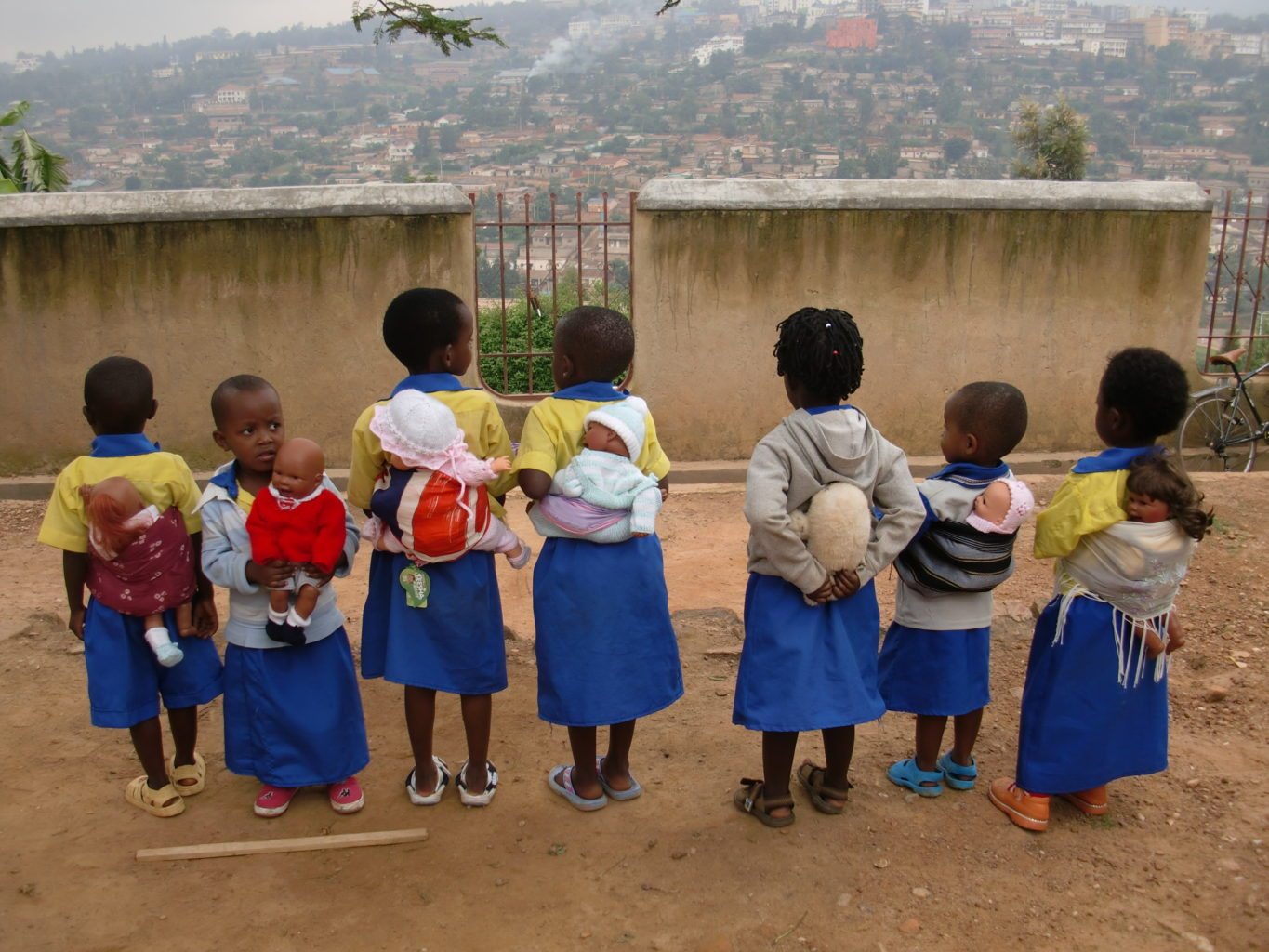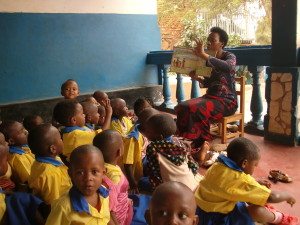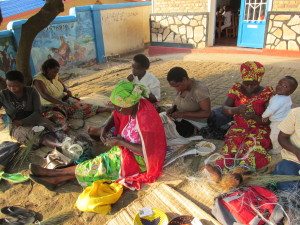Kinamba Community Project
[dropcap]E[/dropcap]mma Tooth, a project manager for Barclays, also spends her time as a Trustee for the Kinamba Community Project, a project in Rwanda with a two-pronged mission: to support the poorest children in the community by paying for their primary education, and to empower local women by providing them with skills and income opportunities that were previously inaccessible.
Throughout my conversation with Emma, I was struck by several particularly admirable qualities of the project. Firstly, Emma assured me that no one is paid for their work outside of the local community. There are several opportunities for volunteering, but the only people who are paid are local tradesmen, teachers, cooks and cleaners, and, as such, the money spent on wages is simply a reinvestment in the local area. In addition, the nature of the project is that it is focused on education and empowerment, and, while there are hand-outs such as the food programme, the majority of the project’s spending revolves around supporting the community on its way to becoming self-sufficient.
While there are many charities with high admin fees, high wages for Western workers, and extortionate advertising costs, the Kinamba Community Project is small enough that admin costs are minimal and advertising costs practically non-existent; “any money we raise goes directly to the community” she says. However, Emma did point out that this has its downsides: fundraising is difficult for small charities that don’t get much media exposure.
Emma then took me back to the start of Rwanda’s current problems. In 1994 the country suffered a genocide, whereby an estimated 800,000 people were killed in around 100 days. Emma told me that this wiped out almost an entire generation of families and disrupted the education of huge swathes of people. This resulted in widespread poverty and illiteracy, and the vicious cycle that results from a lack of education.
Having been involved in fundraising and sending over equipment such as cameras for a number of years, Emma visited the project last October. “Rwanda as a country is beautiful” she says, “the land of a thousand hills…the people are really warm and friendly, very welcoming.”
She told me a bit about the education side of the project: most of the funds raised go to paying for the poorest kids in the community to go to primary school. There is a waiting list of over 100 children because there is no alternative that is free. I asked if there is a state school system, and Emma told me that while there is, parents still have to pay for books and uniform, “so while the education itself is free many families can’t afford to pay for those basics”.
Rwanda has the highest number of women in senior government positions in the world
The project also feeds the poorest children in the education programme, because the teachers noticed that children were coming in on Mondays having not eaten all weekend – she says that one child fainted on a Monday morning. The implementation of school meals has also encouraged high attendance in school, and is therefore providing the children with the opportunity to make a more successful future for themselves.
Emma then moved on to tell me about the most interesting part of the project. The project nurtures the empowerment of vulnerable women who would otherwise have ended up in a very difficult financial situation. She told me that women in the country have no social security if their husbands leave suddenly, and there are limited employment opportunities for women. This empowerment is developed by teaching crafting skills such as basket-weaving and bead-making, and then selling these products at the local market. Apparently the beads are made from recycled triangles of paper that are rolled and varnished, and the baskets are made from dyed grass. 50 percent of the profit goes directly to back to the women who made the product, and 50 percent is reinvested in the food programme that the project also runs.
“The next part of our project is to reach more women, but we haven’t really got the space at the moment.” Currently, the ladies work under a shelter, but Emma pointed out that there is a long rainy season in Rwanda, and during this season the women can’t work outside, and neither can they work at home because there is no electricity for them to see by. The project would like to build a new, enclosed building for the women to work in so that they can continue all year round. She says that this initial investment in the building would eventually become self-sufficient through the money made by the sale of their crafts.
The idea of this second part of the project is really exciting – Emma commented that, while she didn’t see any obvious manifestations of negativity towards women during her stay, in a marriage the husband has complete control. She cited one instance in which a woman who wanted to keep taking contraception and not have another child was forced into having another one because it was what her husband wanted. However, on a more positive note, Emma later told me that “Rwanda has the highest number of women in senior government positions in the world”, and that this indicated a certain amount of equality, but that perhaps it takes a while for it to filter through to all groups of society.
Back in England, Emma’s role as a trustee revolves around fundraising and raising awareness of the project. She talked to me a bit about the opportunities available within the project, and about the volunteers who go out to help. A lot of the time teachers take a year out and visit the project to share their skills, teaching suggestions and ideas with the local teachers, but there are also students who go out on gap years and summer travels.
To find out more about the Kinamba Community Project, visit:
www.kinambaproject.org.uk



Comments